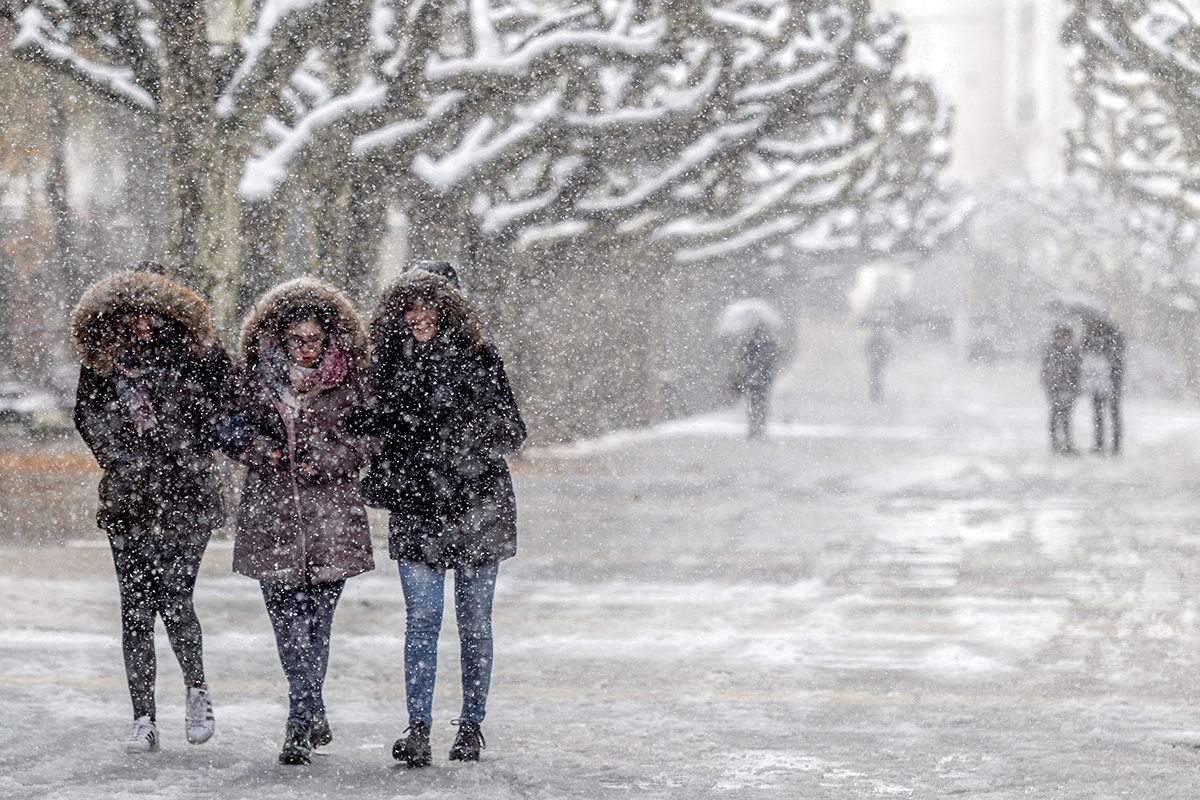
- Frostbite
Have you ever wondered why your fingers and toes, when the weather is cold, are the first areas of your body to get cold? It’s all part of the strategy of the body to safeguard its inner organs. Some severe damage to the skin and tissues of the extremities, otherwise known as frostbite, can result from that task.
During severe cold, the BBC notes, “the body retains its warm blood close to the centre, constraining blood supply in outer regions such as the end of our limbs. In extreme cold, particularly when bare skin is exposed to the elements, this effect can end in frostbite. Blood flow is limited, and the lack of warm blood can lead to tissue freezing and rupture.”
- Increased Pressure on the heart
When you’re exposed to freezing temperatures, whether outside or indoors, the heart needs to do more work. “The risk of a heart attack can be enhanced by cold weather. The heart works harder to keep you warm while you are outside in the cold, contributing to increased heart rate and blood pressure,” Healthline wrote. The elevated work rate will raise the risk of heart failure and reveal underlying cardiovascular conditions that would not be an issue in average temperatures. Exercises such as shovelling snow are also a recognized cause of heart attacks and strokes.
- The Loss of Body Heat
The scientific term for a core body temperature that is less than 95 ° F is hypothermia. Researchers commented in 2019 that the loss of body heat causes hypothermia: “In cold weather, the body will lose heat faster than it is generated, which uses stored energy.” They added that it is also possible for people to get hypothermia at warmer temperatures if they are chilled for a sufficiently long time. Hypothermia risks include massive stress on your organs, particularly your heart, as they struggle to retain adequate warmth to function.
Hypothermic signs can include severe shivering, a slow pulse, and slow breathing. At that point, increasing your body temperature is likely to bring you back to normal through blankets or heaters slowly. However, there are degrees of hypothermia more severe, and these are more serious
- Asthma Attacks and Lung Issues
The BBC stated that people in Wales were being urged during the polar vortex not to breathe deeply while out in severely cold weather. Accuweather says that extreme cold weather “causes airways to close up” and also increases lung lining inflammation, which increases the risk of asthma attacks for people with sensitive breathing systems. Even if you don’t have asthma, you’re not good at breathing in severely cold air. Extreme cold air can prompt spasms in the lungs, impeding breathing for chronic obstructive pulmonary disease. If you work outside, harsh, dry air increases your sensitivity to bronchitis.
- A Slowing Metabolism and Confusion
The more time you spend outdoors, the more susceptible to hypothermia you become. In consequence, shivering is a positive sign. At some stage in hypothermia, Wales’s emergency medicine specialist Dr Jeff Schraider told NPR, “You’ll stop shivering, and then your body temperature will start falling at a faster pace.” At that stage, hypothermia accelerates and becomes more severe as your internal metabolism – the system that regulates your energy levels and internal heat — starts slowing down gravely.
This is also the point where the movement gets more complicated, according to National Geographic, and the working of the brain slows down. “It’s especially dangerous when you have to make a critical cold decision, like choosing a hiking trail,” they say. In this claim, hypothermic individuals become easily confused. It is unknown to people with hypothermia, in the cold weather, to strip off all their clothing, sure they are simply overheated. This is referred to as ‘paradoxical undressing’ and is quite risky.
How to Increase Your Body Temperature
Consider the social benefits of a patio heater towards the increase of body temperature and many other techniques are:
- Exercise
- A warm bed
- Heat therapy
- Hot spas & hot baths
